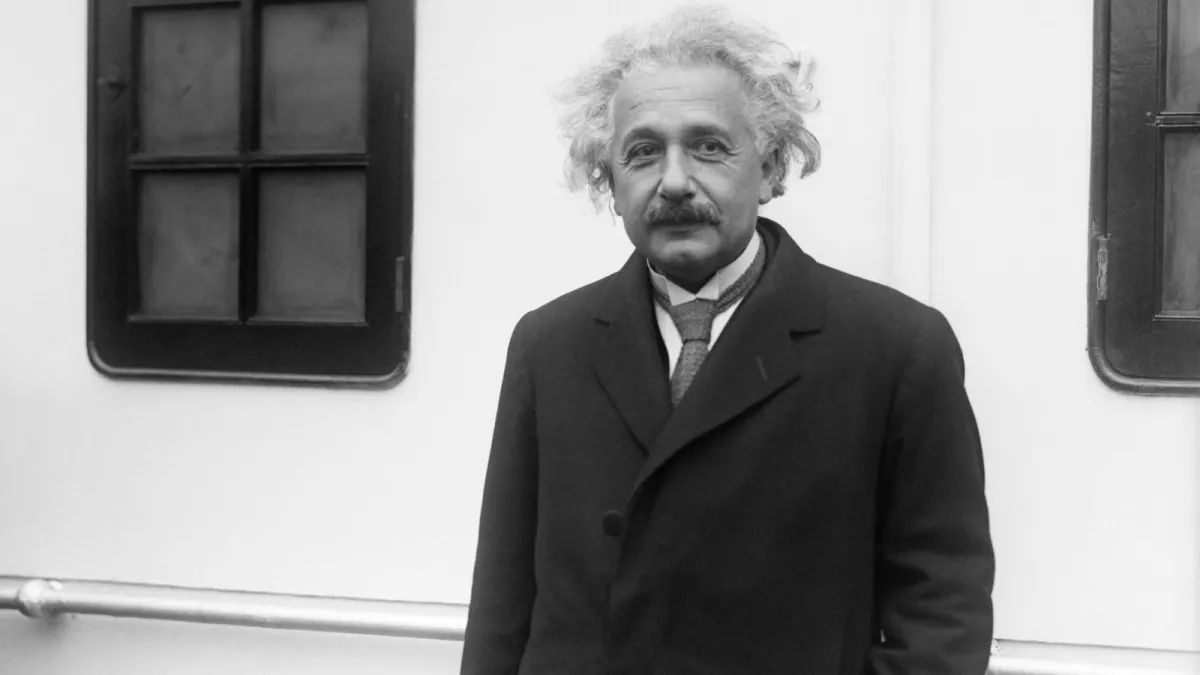At the time J. Robert Oppenheimer was recruited by the U.S. government to oversee the creation of the world’s first atom bomb, the operating assumption was that Germany was on the very cusp of nuclear technology, and could be the first to develop it. The drama of this nuclear arms race will be the focus of the upcoming Christopher Nolan film Oppenheimer. But how does Albert Einstein play into the equation?
Oppenheimer and Einstein, both highly-esteemed theoretical physicists, knew each other in real life. So was it Einstein himself who convinced Oppenheimer to develop the bomb? Not exactly. Instead, Einstein had more of an indirect influence on Oppenheimer’s involvement.
Oppenheimer and Einstein first met in January 1932, during Einstein’s visit to Cal Tech as part of his world travels at the time, according to the book Einstein, Oppenheimer, and the Meaning of Community by Silvan S. Schweber. In 1939, Einstein wrote a letter to then-President Franklin D. Roosevelt to warn him that Nazis were working on the first atomic bomb, and that Germany happened to be the residence of some of the world’s foremost nuclear physicists. It is widely believed that it was in response to this letter that Roosevelt decided to begin a nuclear program in the U.S.
Oppenheimer was eventually recruited by General Leslie Groves to spearhead what would be known as the Manhattan Project, giving birth to the world’s first atomic bomb and ushering in the nuclear age. However, Einstein himself was never directly involved in the development of nuclear weapons, according to the American Museum of Natural History.
Einstein’s most famous formula, E=mc2, did provide the theoretical justification for how the fissioning of an atom could produce a huge amount of energy. But there were an untold number of technical hurdles to transforming this theoretical possibility into a reality. In fact, in 1940, Einstein was not even granted the requisite security allowance to collaborate with the scientists working on the Manhattan Project. As AMNH explained, “The hundreds of scientists on the project were forbidden from consulting with Einstein, because the left-leaning political activist was deemed a potential security risk [by the U.S. Army Intelligence office].”
Eventually, the U.S. dropped two atomic bombs in 1945 in Japan. Though estimates vary, the eventual death toll from the bombings of Hiroshima and Nagasaki is believed to be in the hundreds of thousands.
In retrospect, Einstein would later remark that he regretted sending the letter to Roosevelt, saying, “had I known that the Germans would not succeed in developing an atomic bomb, I would have done nothing.”
